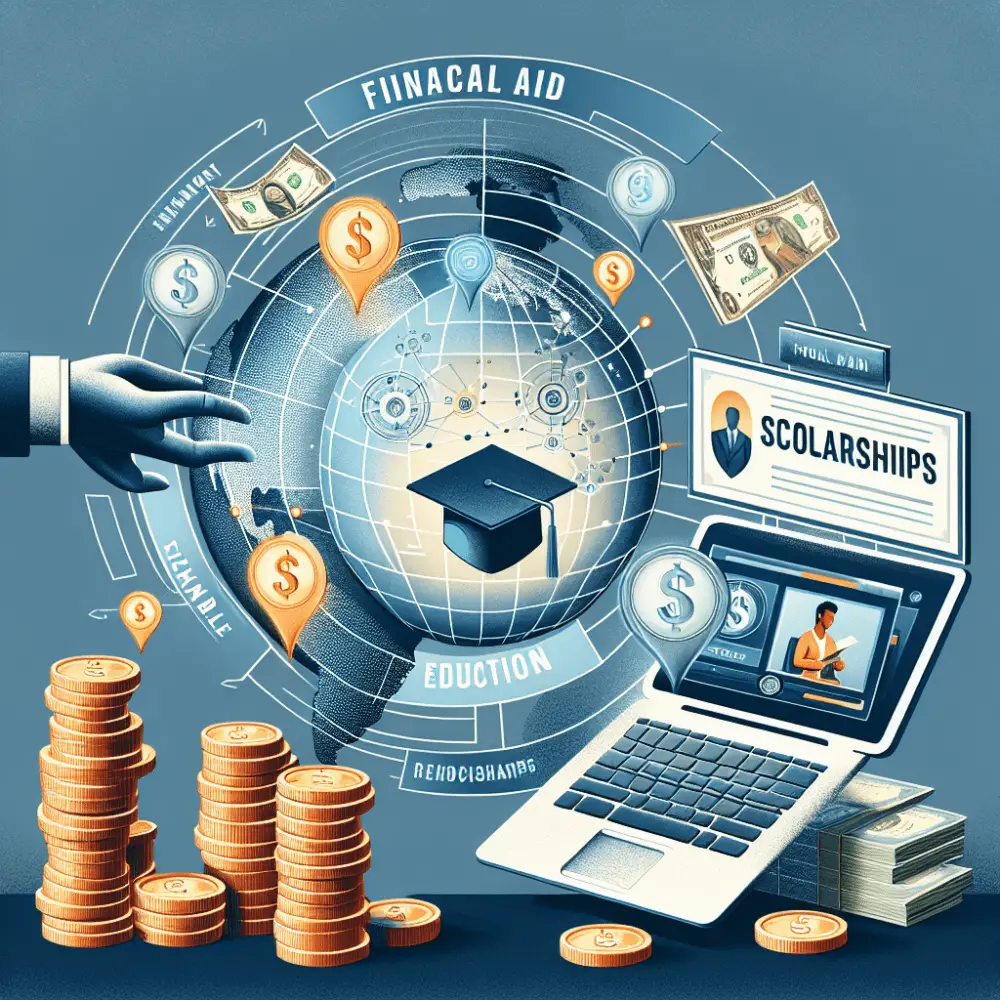
Exploring New Avenues for Remote Learning Assistance in Higher Education
With the ever-evolving landscape of education, particularly post-pandemic, there is one clear answer to the question of how to effectively support remote learning in higher education: embrace technological innovation and novel educational strategies with open arms. Universities and colleges across the globe are adopting new tools and methods to enhance online learning experiences, ensuring that students receive quality education despite physical restrictions. From offering accessible resources to tailoring learning techniques, many institutions are redefining what it means to learn in a digital age.
Integrating Technology in Education
The use of technology in higher education has surged since the onset of COVID-19, pushing institutions to find creative solutions for remote learning. Advances in educational technology tools, or "edtech," play a pivotal role in this transformation. Platforms such as Zoom, Microsoft Teams, and Google Classroom have become staples in virtual classrooms, creating spaces for real-time interaction and collaboration.
However, the future of remote learning aspires to go beyond mere video conferencing. The incorporation of virtual reality (VR) and augmented reality (AR) offers immersive learning experiences that can mimic real-world environments, providing students with a sense of presence. For instance, medical students could simulate surgical procedures, while architecture students tour design concepts — all from the comfort of their own homes.
Tailoring Learning Experiences
One significant avenue for the advancement of remote learning is personalized education. Remote learning platforms can gather data on student performance and preferences, allowing educators to customize lessons to fit individual needs. This approach helps identify areas where students struggle and offer targeted assistance, thereby enhancing their learning journey.
Moreover, asynchronous learning models have shown great promise. Students can access lectures and materials at their convenience, catering to different time zones and personal schedules. This flexibility ensures that students maintain a balance between academia and their personal lives, a crucial factor in the overall effectiveness of remote learning.
The Role of Scholarships in Remote Learning
Financial support remains an essential aspect of higher education, particularly in accessing remote learning resources. Scholarships provide a lifeline for students who may otherwise be unable to afford tuition and technology. Programs such as "Free Scholarships for Secondary School Students Abroad" aim to bridge the gap between opportunity and affordability, helping students gain access to necessary tools and resources.
For students seeking higher education with a business focus, opportunities like the "$800 Young Entrepreneurs Challenge, Spain 2024" could open doors to innovative learning experiences. Such scholarships not only offer financial aid but also foster an environment where creativity and entrepreneurship thrive, critical skills in today’s competitive job market.
Enhancing Accessibility and Support
The transition to remote learning has highlighted the need for greater accessibility for all students, including those with disabilities. Educational institutions are pioneering strategies to ensure equal opportunity in online learning. Adaptive technologies, such as screen readers for visually impaired students and real-time captioning for those with hearing difficulties, are becoming critical components of digital classrooms.
Furthermore, remote learning platforms are integrating comprehensive support systems that offer academic assistance and mental health resources. Peer tutoring, online study groups, and digital office hours help students stay connected and engaged. Access to counseling services via telehealth platforms provides emotional and psychological support, promoting overall well-being in the educational ecosystem.
Embracing Collaborative Learning
Despite the physical distance, collaborative learning remains vital in remote education. Digital platforms facilitate teamwork by enabling group projects and discussions, which are crucial for developing soft skills such as communication and teamwork. Platforms like Slack and Trello assist students in managing projects and maintaining effective communication.
Moreover, institutions are recognizing the benefits of creating learning networks that connect students, faculty, and industry leaders. Such collaborations encourage knowledge sharing and provide students with mentors who can guide their professional development. Bridging the gap between academia and the workplace prepares students for future challenges, making their education more relevant to real-world applications.
Preparing Educators for the Digital Era
For remote learning to be successful, educators need to be equipped with the necessary skills and tools. Professional development programs focusing on digital literacy and online teaching strategies are vital for teachers to effectively engage students. Workshops, webinars, and online courses are increasingly popular means for educators to stay abreast of new teaching methodologies.
Moreover, fostering a community of practice where educators can share insights and strategies enhances their ability to adapt to the dynamic landscape of remote learning. By learning from each other’s experiences, teachers can develop innovative approaches to overcome common challenges faced in virtual classrooms.
Future Prospects of Remote Learning
Remote learning, with its myriad of tools and techniques, is here to stay. As technology continues to advance, so too will the methods employed in higher education. The integration of artificial intelligence (AI) stands to revolutionize remote learning by delivering personalized content and automating administrative tasks.
Looking ahead, remote learning will likely adopt a hybrid model that combines the best of both in-person and online education. Such an approach offers flexibility and inclusivity, supporting diverse learning preferences and circumstances.
In conclusion, the exploration of new avenues for remote learning assistance in higher education hinges on embracing technological advancements, offering inclusive support systems, and fostering an environment of collaboration and continuous learning. With ample opportunities for scholarships like "Free Scholarships for Secondary School Students Abroad" and programs such as the "$800 Young Entrepreneurs Challenge, Spain 2024," students are poised to achieve academic success irrespective of geographical limitations. As educational institutions and stakeholders work together, the future of remote learning promises a more accessible, personalized, and engaging academic experience for all.












